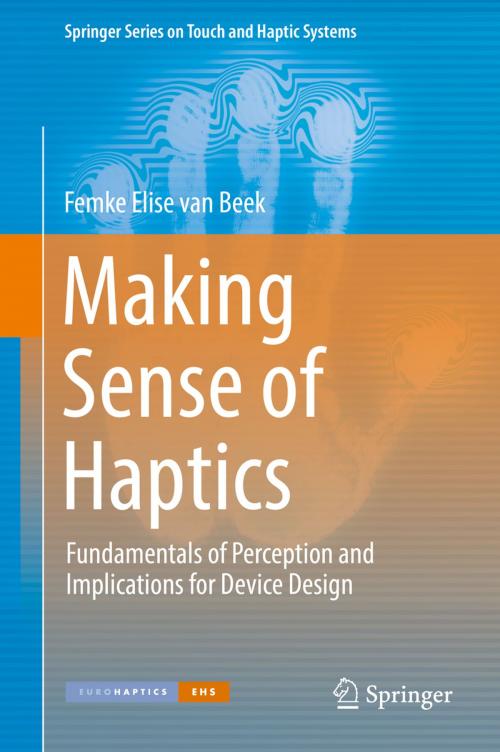Making Sense of Haptics
Fundamentals of Perception and Implications for Device Design
Nonfiction, Computers, Advanced Computing, Programming, User Interfaces, Science & Nature, Technology, Robotics, General Computing| Author: | Femke Elise van Beek | ISBN: | 9783319699202 |
| Publisher: | Springer International Publishing | Publication: | January 5, 2018 |
| Imprint: | Springer | Language: | English |
| Author: | Femke Elise van Beek |
| ISBN: | 9783319699202 |
| Publisher: | Springer International Publishing |
| Publication: | January 5, 2018 |
| Imprint: | Springer |
| Language: | English |
Tele operation systems, in which robots are controlled remotely, are a potential solution to performing tasks in remote, small, and hazardous environments. However, there is a big disadvantage to these systems; as the direct connection between the human and the environment is lost and operators are deprived of their sense of touch. The recreation of touch feedback through haptic devices is a possible solution, however haptic devices are far from perfect and improving their design is usually a slow trial-and-error process.
This book describes 7 scientific studies that try to break this slow loop by using a deductive approach. Through investigating fundamental properties of human haptic perception using psychophysical paradigms, general knowledge on haptic perception of force, position, movement and hardness was gained. The resulting information can be applied to many different haptic devices. Consequently haptic systems can be more easily designed in an intuitive, human-centered way.
Tele operation systems, in which robots are controlled remotely, are a potential solution to performing tasks in remote, small, and hazardous environments. However, there is a big disadvantage to these systems; as the direct connection between the human and the environment is lost and operators are deprived of their sense of touch. The recreation of touch feedback through haptic devices is a possible solution, however haptic devices are far from perfect and improving their design is usually a slow trial-and-error process.
This book describes 7 scientific studies that try to break this slow loop by using a deductive approach. Through investigating fundamental properties of human haptic perception using psychophysical paradigms, general knowledge on haptic perception of force, position, movement and hardness was gained. The resulting information can be applied to many different haptic devices. Consequently haptic systems can be more easily designed in an intuitive, human-centered way.















